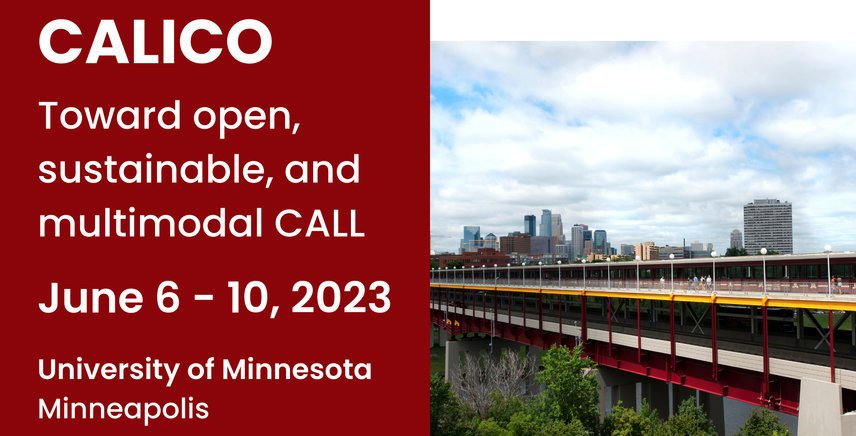CALICO 2023 Conference Report
By Grant Castner, Community Manager for Extempore

DOI: https://www.doi.org/10.69732/UQLC8086
The 2023 Computer Assisted Language Instruction Consortium (CALICO) conference took place at the University of Minnesota in Minneapolis. Educators and researchers from around the world gathered to celebrate 40 years of CALICO through the theme of “Open, Sustainable, and Multimodal CALL.”
Katie Brown, PhD, opened the conference delivering a keynote address titled “CALL as a Driver of Equity, Access, and Outcomes in an Increasingly Connected World.” Her speech noted the coming together of post-pandemic research and technology, the need for communication and collaboration in the workspace through language learning, and the recent explosion of AI (artificial intelligence) across all spheres of life. Dr. Brown also emphasized how the past few years have changed our perspectives towards learning and working, and as a result, now is the time to adapt to this climate as we find the right place for technology in both work and education, and how we can use said technology to better teach languages.
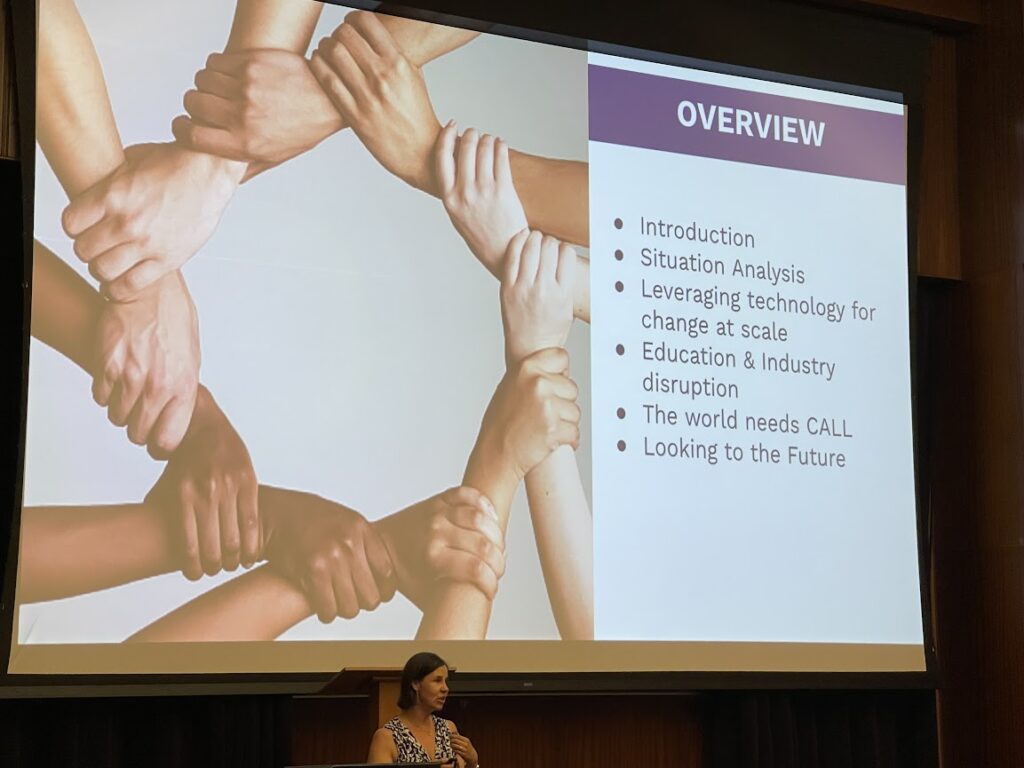
Across the conference, presenter sessions covered a wide variety of topics, including AI (“AI-based Tools and Instructed Language Learning: What Role Should They Play?”), VR (“Fairy Tales VR: A VR-informed Writing Task with Young Learners), and, among others, future visions for CALL (Mavericks of Mind – Experimentation in Social CALL: A Five Year Retrospective and Vision for the Future).
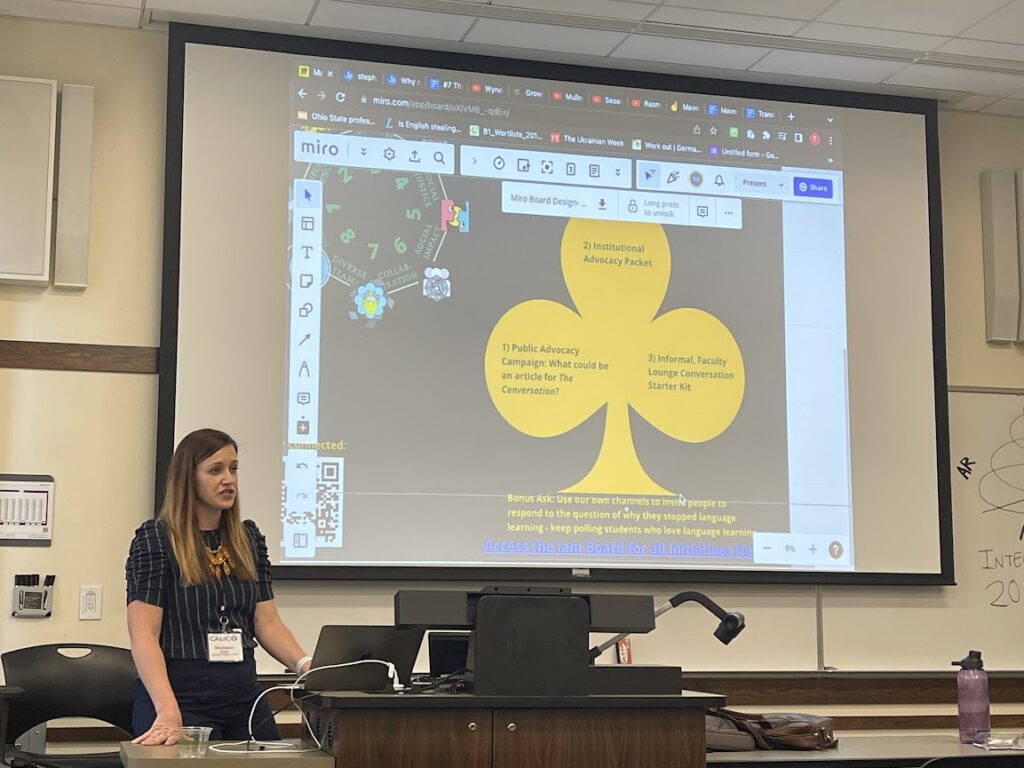
After Wednesday evening’s plenary, the LaunchPad event took the conference spotlight on Thursday midday. This event is hosted by The Language Flagship Technology Innovation Center at the University of Hawaii at Manoa. To quote its website, the “LaunchPad event offers a unique platform for first-time entrepreneurs who have created a technology product intended to impact world language education.” This year’s five featured products were:
- DLS VR, a virtual reality (VR) platform for culture-based and task-based language learning.
- Eduling Speak, a platform for collaborative, group-based language learning grounded in TBLT.
- Pangea Chat, an instant messaging platform for students to learn languages through texting.
- Lingostar.ai, an AI-based platform for conversational immersion
- Mage Duel, a video game for accelerated language learning.
The entrepreneurs presented their products to a panel of judges composed of language program directors, business owners, and other stakeholders in the field. Products were assessed on their fit with the Flagship program, product alignment, user experience, innovation, and pitch quality. While responding to questions directly from panelists, entrepreneurs also addressed crowdsourced questions from the audience. In the end, Lingostar.ai came out on top as winner of this year’s LaunchPad competition as judged by the panel, while also earning the People’s Choice Award through an audience vote.
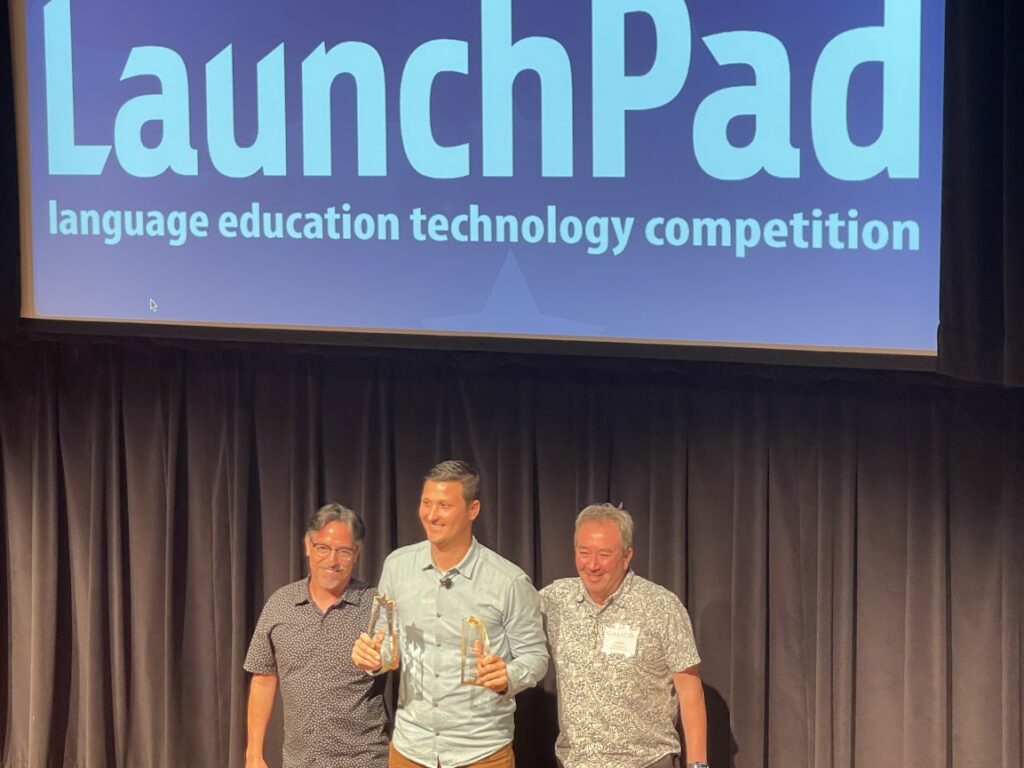
Amid dozens of presentations, panel sessions, and special events like the LaunchPad, CALICO attendees charged up in the break/exhibit room in Folwell Hall. Here attendees could network with others as well as visit booths sponsored by Yabla, Avant Assessment, Extempore, and IALLT. After the LaunchPad event, participating entrepreneurs were also able to set up for a few hours in the exhibit room.
The conference closed out Saturday morning with a final keynote from Dr. Phil Hubbard from Stanford University, who spoke to the conference’s theme in his presentation “Exploring Openness in CALL.” Dr. Hubbard addressed the growth and changes of CALL since its inception in the 1980s, while also addressing the many open solutions for all in the field of language teaching and learning. He shared a plethora of open-sourced materials for teachers and learners, researchers, developers, and all others interested in CALL.
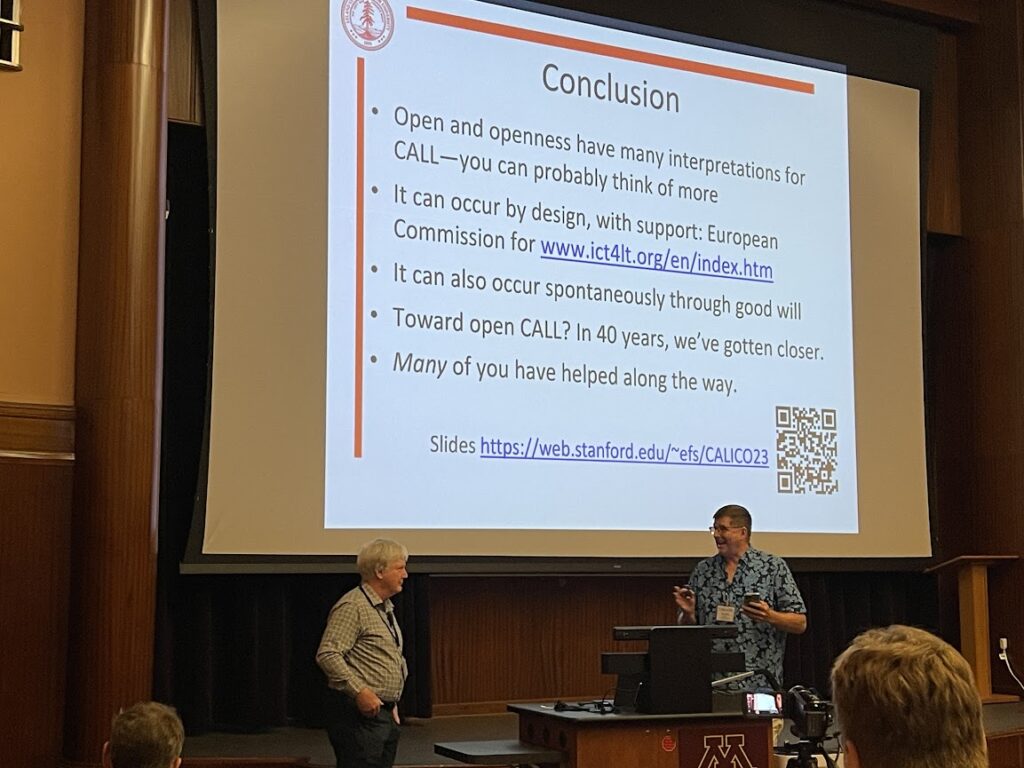
As the doors closed on the 2023 CALICO conference, CALICO president Randall Sadler praised the organization’s ability to bring people together for valuable, in-person interactions and learning through its annual conference: “You’re always seeing interesting new technologies, new ways to use older technologies, but [you’re also] making connections…. that to me is the spirit of the organization.”
Next year’s conference will be held in Pittsburgh, Pennsylvania at Carnegie Mellon University.

